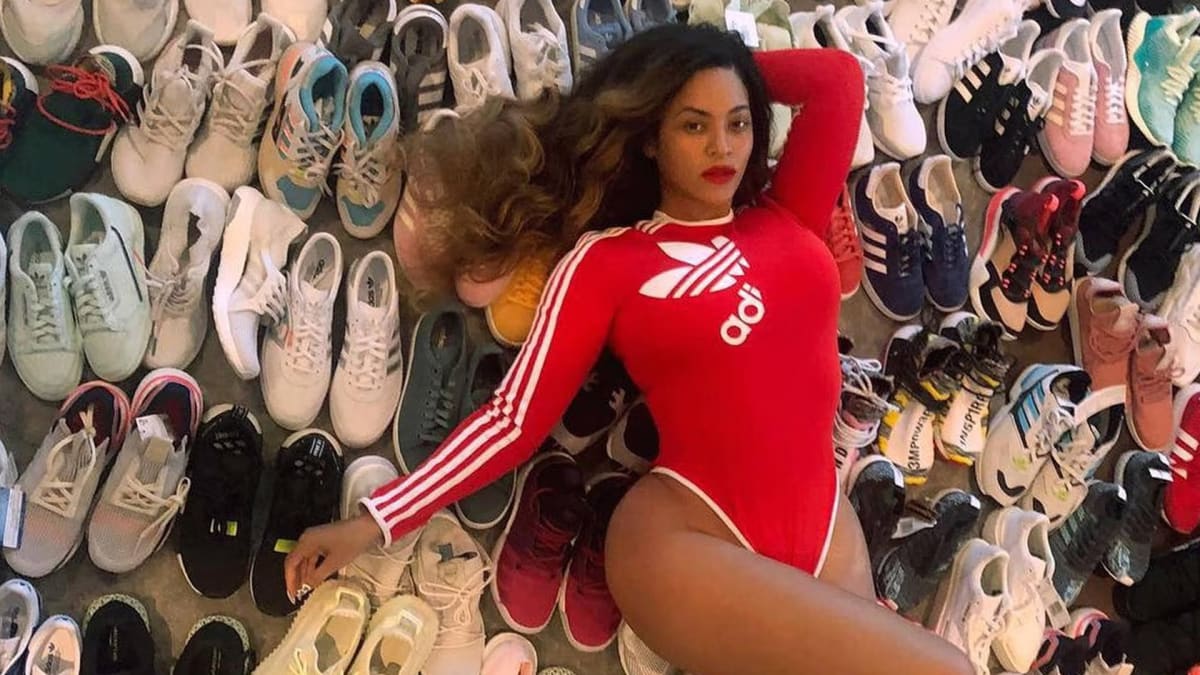
The paradox of Beyoncé Knowles is that while she’s one of the most famous, popular and critically acclaimed entertainers of her generation, many, many people view her as the sort of underdog you can’t help but root for.
Can a person who tours stadiums and can claim eight number one Billboard hits to their credit, really be considered in any way underappreciated? The answer is a heavily qualified yes.
See for example Sunday’s 65th Grammy Awards, for which Beyoncé officially broke the record for the most wins in the institution’s history, for a total of 32.
But as critics such as The Los Angeles Times’ Mikael Wood have pointed out, when she lost the Grammy for Album of the Year to Harry Styles’ “Harry’s House,” “it was her fourth defeat for the Grammys’ equivalent of best picture and the 15th time she’d lost in one of the ceremony’s top categories of album, record and song of the year.”
Furthermore, while Beyoncé has won 32 Grammys over the course of her career, she’s only won one of the so-called big four once, for “Single Ladies (Put a Ring on It)” back in 2010. “All the rest have come in genre categories like R&B song and urban contemporary album.”
Even Beyoncé Can’t Win Everything
Beyoncé’s debut solo album “Dangerously In Love” came out 20 years ago, and she’s spent two decades largely being shut-out of the major categories, often losing out to albums that were not as critically acclaimed or culturally dominant as what she was making.
While sexism and racism may play a part, the real culprit is that the music industry veterans that vote for the Grammys tend to favor music that slides neatly into the traditional rock and pop forms, i.e. rock and pop that sounds like its from the ‘60s and ‘70s, which was a sound Harry Styles clearly molded his Award-winning album on as a bid for authenticity and credibility.
In contrast Beyoncé’s “Renaissance,” which was both Rolling Stone and Pitchfork’s Album of the Year, was both an ode to and a historical examination of the underground club music created by black and queer people. While the album won for Best Dance/Electronic music album, its seems safe to say it went outside the comfort zones of Grammy voters.
Additionally, many old-school types turned their noses up at the way the album was made, which included multiple producers and songwriters with Beyoncé serving as the guiding creative spirit, which again offended their old-fashioned sense of authenticity.
So while Beyoncé may have again been shut out of her rightful coronation, she still broke records, and tickets for her upcoming stadium tour are going for a small fortune.
But beyond getting shut out of the top four awards, the singer might have a much bigger headache to deal with, one much costlier than a Grammy trophy.
One Of Beyoncé’s Brand Extensions Isn’t Landing
Fans ravenously eat up Beyoncé’s albums, and the resale value of tickets for her upcoming tour has people wondering whether they really need both of their kidneys. But Beyoncé is, shockingly, only human, and apparently not everything she touches turns to gold after all.
Sales for the singer’s Ivy Park streetwear line with Adidas (ADDDF) fell more than 50 percent in 2022 to $40 million, according to Business of Fashion. This total is far below Adidas’ $250 million revenue projections, and the company has announced it expects to lose $10 million from the partnership last year.
Beyoncé launched the line in 2016 as a collaboration with Philip Green, who was then the owner of Topshop. In 2018, she bought full ownership of Ivy Park and re-launched it in partnership with Adidas. She receives $20 million annually as part of the deal, which is set to expire in 2023.
Adidas expects the line to generate $65 million in sales this year, instead of the previous target of $335 million. While fans rally to the singer’s defense and start buying Ivy Park shoes in mass? Or do even the most ardent Beyhive members need to watch their budget these days?
While this isn’t great news for the singer or the clothing company, it could be much, much worse, as Kanye West’s recent heel turn to antisemitism lead to Adidas canceling his once red-hot Yeezy line, leading to a loss of $500 million.







